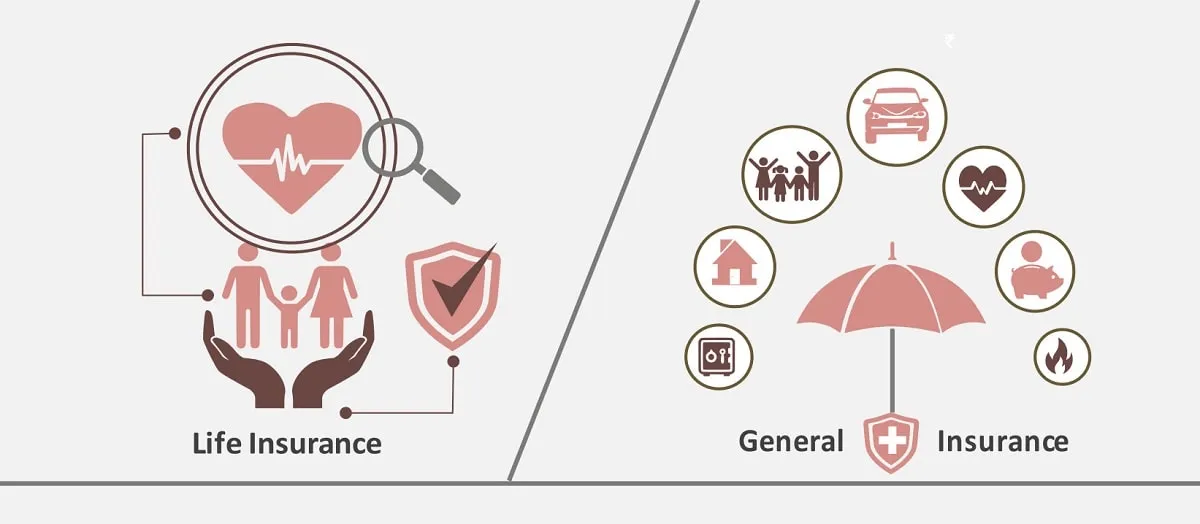Table of Contents
ToggleProperty Insurance
Life insurance and property insurance are two types of insurance that help to protect against the loss of life and property respectively. However, they both have their own unique features which make them stand out from each other.
There are many differences between life and property insurance. One significant difference is the time frame in which they are taken out. Life insurance policies can only be taken out for a specific period of time while property policies can be taken out for an indefinite period of time. Another difference between life and property is that life insurance has higher premiums than property policies because it covers more risk factors than just one event like fire or theft.
The two types of insurance have similarities as well in terms of how they work and how much coverage they provide. The purpose of this article is to compare and contrast life insurance and property insurance.
How Does Property Insurance Work?
Property insurance is a type of insurance that covers the risk associated with property. It is typically used to protect against damage or destruction to property. It is also used to cover losses that may be incurred by the owner of the property due to various events, such as natural disasters, theft, and fire.It can also cover living expenses if you are unable to work because of an accident or illness.The policyholder pays a premium in exchange for protection against these risks.
The cost of a policy will vary depending on the type of property you own and whether it is inside or outside the UK. The cost will also depend on how much coverage you need, how long it lasts, and whether you have any additional features such as personal liability protection.
In general, property insurance provides three types of coverage:
- Property Coverage: This covers the risk that your home or other buildings will be damaged by natural disasters such as fire, earthquakes, hurricanes and tornadoes.
- Liability Coverage: This protects you from legal claims made by people who are injured on your property or if your property is damaged while someone else is on it.
- Business Interruption Coverage: This protects you from financial losses caused by the interruption of your business operations when covered events occur such as fires and floods.
How Does Life Insurance Work?
Life insurance is a type of insurance that pays out a lump sum to the beneficiaries if the insured dies. Property insurance protects the insured’s property against damage or loss.
In general, life insurance is more expensive than property insurance and provides more benefits in return. However, it is important to compare both types of policies carefully before selecting one.
Life insurance policies are designed to help pay for funeral and burial expenses, medical bills, and other living expenses if the policyholder were to die before their policy has matured or been paid out. In most cases, life insurance policies pay a lump sum when you die or pay out income until you reach a specific age. The amount paid out depends on the type and level of coverage selected, as well as the age and health of the policyholder.
What Are the Similarities Between Life & Property Insurance?
Life and property insurance are similar in many ways. They both provide financial protection for the insured individual or property. They also both have different types of coverage: life insurance for life and property for specific types of coverage such as fire, theft, and earthquake. Both are types of insurance that provide protection for your assets. They both pay out in the event of death or loss, but they differ in how they work.
In addition, they are both used to cover different risks: life insurance to cover the risk of death while property insurance to cover the risk of physical damage or destruction to property.
What are the Differences Between Life and Property Insurance?
The most significant difference between life and property insurance can be found in how they are issued. Life insurance policies are typically issued by an insurer who will pay off a policyholder’s estate (or beneficiary) upon their death. Property insurance policies are typically issued by an insurer who will pay out on claims made by policyholders or their beneficiaries if the policyholder dies or their business becomes insolvent.
Life insurance provides coverage for death, while property insurance covers damage and destruction.
Life insurance is often considered as an investment instead of an expense because it provides protection from financial loss in case the policyholder dies. Property insurance, on the other hand, protects against risks such as fire, theft and natural disasters.
In nutshell
Life Insurance:
- Provides an income for your family after your death
- Pays out a lump sum in case of death
- Protects your loved ones from having to pay for funeral expenses
Property Insurance:
- Protects your assets against damage or loss such as theft, fire, storm and natural disasters
- Provides peace of mind by giving you protection against future losses
Takeaway:
Life insurance is a contract that pays a certain amount of money if the insured dies during the term of the policy. The money can be used to pay off debts, provide for children, or help with medical expenses. It is typically used to address short-term financial needs while preparing for other financial goals such as retirement.
Property insurance covers damage to property due to fire, theft, hail storm, earthquake or other natural disasters. It protects against loss from fire or water damage in buildings as well as from windstorms and hail storms that cause extensive damage to homes and cars.
Though conceptually, they are two different types of insurance, the main similarities between life and property are that they both protect you against death and they both protect your belongings from damage or theft.















